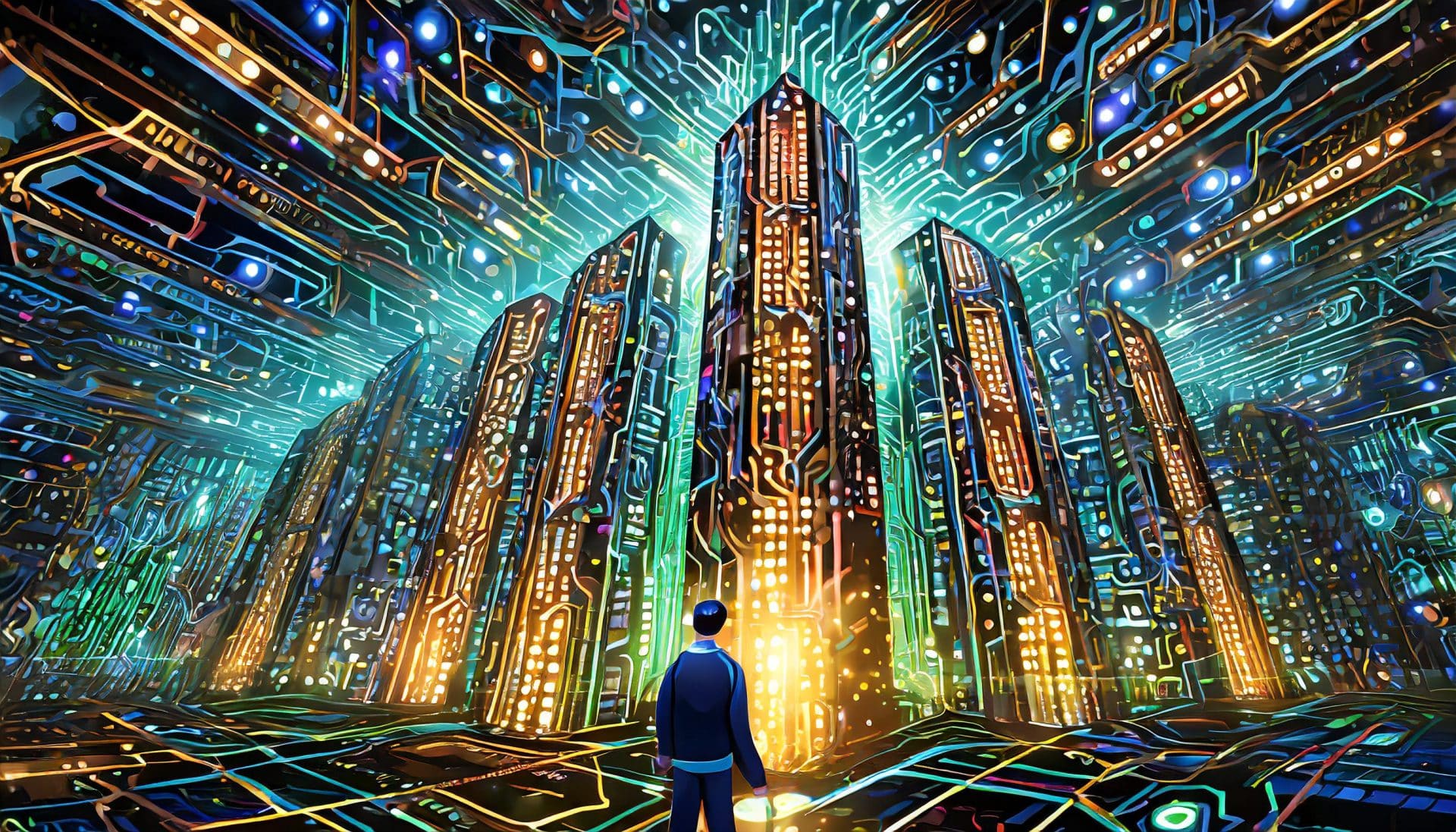“Homo Deus” is Yuval Noah’s 2015 book, following “Sapiens” from 2011 (first published in Hebrew, then later, in 2015 in English).
I first read Sapiens a few years ago, then again over last year’s holiday break. I initially got Homo Dues from the library, didn’t manage to finish it, and then spotted it again late last year while exploring Hard to Find Books. It’s sat next to my bed for the last half of a year, slowly being digested.
To say these are dense books would be an understatement. While they are not a ‘quick’ read, they have both kept drawing me back to them and with his latest, “21 Lessons for the 21st Century”, sitting next to it, waiting, it was time to finish it.
In ‘Homo Deus’, Yuval Noah Harari explores the future of humankind, building on his previous work ‘Sapiens’, which focused on our past. The book delves into the potential destiny of humans as we develop and integrate technology into our lives, becoming more god-like in our abilities.

A Rundown of Central Ideas
In ‘Homo Deus’, Harari brings to light the compelling notion of the ascendancy of Homo Deus, or the ‘god-man’. This is rooted in our burgeoning capabilities to engineer and rule over life. Harari hypothesises an evolutionary leap of humans into a technologically amplified species–a prelude, perhaps, to the dawn of ‘superhumans’.
Dataism emerges as another central tenet in this fascinating narrative. Harari conjectures that an era where data reigns supreme is looming over us. According to him, information flow will dictate global functions, while algorithms, fed on this data, will decide our course. This evokes intriguing questions about shifts in power balance–more so around the potency of those at the helm of this data deluge.
The endurance of mortality, or ‘immortality’, is an additional string entwined in the rich tapestry of Harari’s message. He fleshes out the relentless human pursuit of conquering death, underpinned by advancements in fields like AI and biotech. The propensity for genetic modifications and artificial organs points towards this reality. Simultaneously, he poses bold questions about the ethical minefield this uncharted terrain might hold.
In the sweep of his narrative, Harari also explores the chilling possibility of human irrelevance. In an increasingly advanced AI world, advanced automation could relegate humans to obsolescence. His ominous predictions about a burgeoning ‘useless class’ outpaced by machines frame an alarming image that stirs profound questions about how work and society will shape up.
In essence, ‘Homo Deus’ pushes us to confront the future of humanity, keeping us rapt with provocative themes around the future trajectory of Homo Deus, the dominance of dataism, the journey towards immortality, and the disturbing prospect of human irrelevance. Harari’s introspection into our technology-driven evolutionary trajectory demands our attention and cognition.

Reading Between the Lines: The Subtexts in Homo Deus
Delving deeper into Homo Deus, one cannot help but be captivated by Harari’s well-articulated concerns about our scientific triumphs being operated under a deficient ethical compass. With assertions on the disparity between our scientific advancements and moral sensibilities, Harari seems to be on a mission to awaken us to our stunted ethical growth.
While Homo Deus might not explicitly enter the raging debates of AI ethics, it’s impossible to disregard that the book serves as an uncomfortable reminder of the seminal question – who should control our data? As we tread the unseen pathways of Homo Deus, do we see the footprints of AI which might lead us to prosperity or peril? It’s a question worth pondering. For isn’t it true that how we mould the AI revolution would determine whether we evolve into Homo Deus or devolve into redundancy?
Interestingly, Homo Deus also covertly disenfranchises the belief that AI might surpass its human creators. Harari instead focuses on how AI has the potential to amplify our capabilities, transforming us into more evolved beings. This mirrors the sentiment that AI significantly affects our behaviour and interaction.
In essence, the subtexts in Homo Deus are both enlightening and disquieting. They seek to trigger an introspection about the ‘Age of AI’ and our preparedness to ethically and humanely navigate it. As we turn the last page, we are left with a deeper understanding of Harari’s central ideas and questions about our readiness for this imminent future unfolding before us.
Irrespective of where we currently stand, from the technologically enthusiastic to the sceptical, Homo Deus seems to serve as a reminder to tread cautiously. The future revolves around a utopia or dystopia and will be primarily written now, in our present actions and decisions. And that’s a responsibility we cannot afford to ignore.

Relevance of Homo Deus in the AI-Dominated Era
Drifting into the realms of our suspense-filled future, it becomes clear that Yuval Noah Harari’s opus, Homo Deus is not merely an insightful historical account but a prophecy of an AI-dominated world. The narrative, composed before the onslaught of the artificial intelligence revolution, bears uncanny relevance as these predictions are becoming an intimate part of our lives.
AI eventually surpassing its human creators is a theme echoed strongly within Homo Deus. Harari weaves a narrative where the Homo Sapiens evolve and mutate into ‘Homo Deus’ (god-like humans) courtesy of this technology revolution that, even as we share these thoughts, engulfs the globe.
The advent of extended intelligence, described by Joi Ito, and AI’s profound impact on human interaction is another cornerstone that Harari cleverly anticipates. Human behaviour, moulded by artificial intelligence, endorses that Harari’s foresight was not fiction but fact tied in well-argued hypotheses.
Indeed, one cannot elude the looming anxiety around AI’s potential threat to human autonomy. The varying opinions across a spectrum of experts on AI enhancing or limiting human agency are a testament to Harari’s precognition. Curiously, it is almost as if Homo Deus serves as a roadmap to navigate us through these alarming debates.

We stand on the verge of a revolutionary epoch where AI reforms every aspect of human existence, from art creation to warfare strategies to medical marvels. The magnitude and reach of these changes are laced with an undying responsibility – a foresight implied in Homo Deus to steer the course of this AI revolution responsibly.
Exploring the profound implications of AI on economy, warfare, privacy, and security, where the prediction of AI being a tool to tackle multiple global challenges finds a grounding. This resonates with Harari’s profound exploration of the future, threading a narrative that weaves the scientific, philosophical and ethical aspects of an AI-dominated future.
Although written years ago, Homo Deus resonates more than ever before with the AI revolution that is unfolding at breakneck speed. As the debate rages on about how this revolution will shape our future, Harari offers us a profound, if somewhat unsettling, glimpse into the world we may soon live in.




